Emily Little is used to teaching children about animals, but when it comes to her new start at Fossil Rim, she is also playing the role of student while learning about a lot of different species.
Born and raised in Loveland, Colorado until age 18, Little was a double major in marine science and biology at the University of Tampa with a minor in education. Her Fossil Rim career as an education specialist began on Aug. 20.
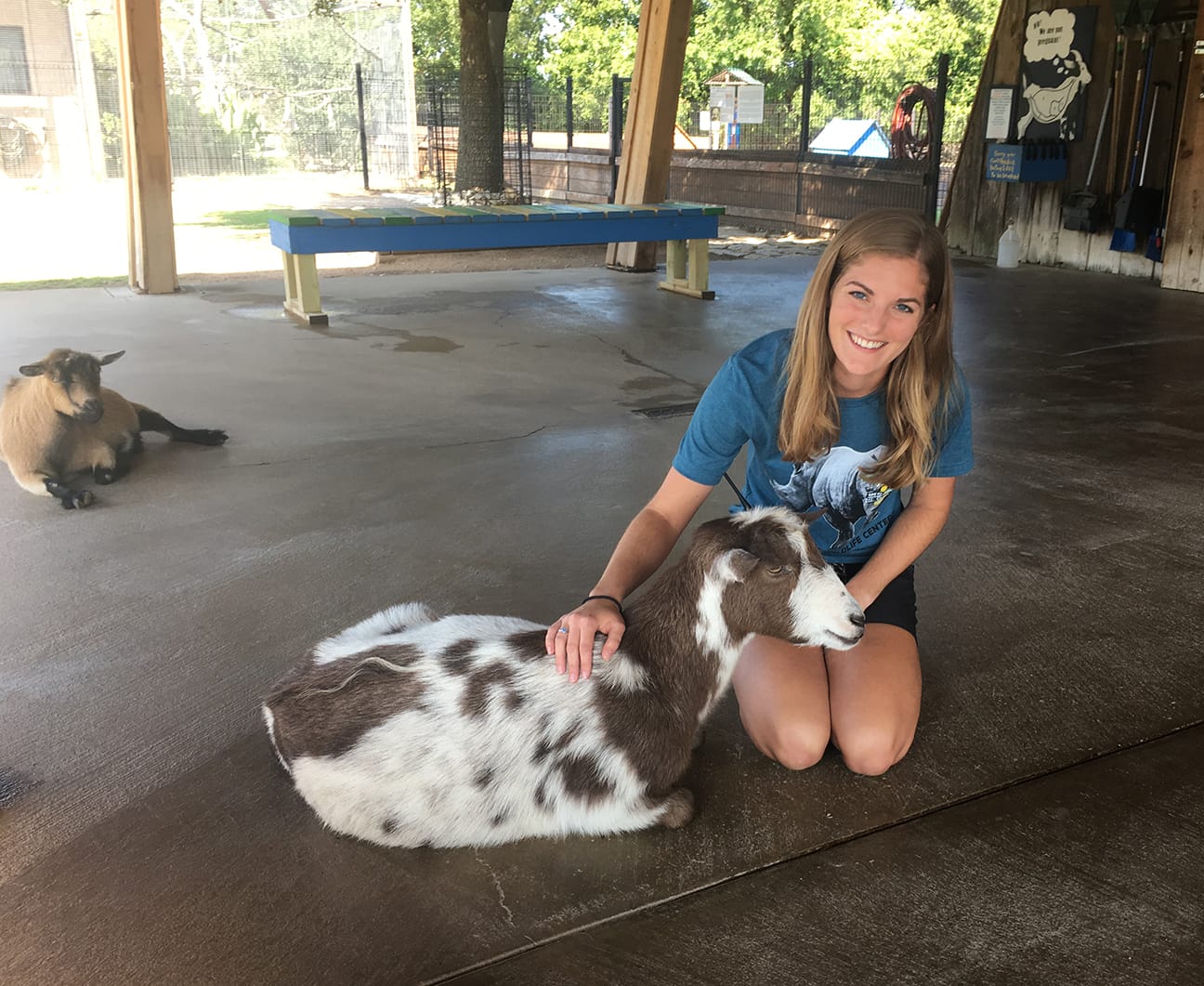
“I came to Fossil Rim as a child,” she said. “My aunt and uncle have a lakehouse in (nearby) Granbury. I remember being chased by the ostriches and hiding under the (vehicle) seat. When I was looking at possible jobs, (Fossil Rim) popped up on the AZA website and I recognized the name.”
Little has an interesting work history that most recently includes UGA Marine Extension and Georgia Sea Grant, Glazer Children’s Museum (Florida), and Honeymoon Island State Park (Florida).
“My time working in Tampa at the children’s museum will hopefully prove valuable to me here,” she said. “We’d have school groups come in, and it was fascinating to watch the different ways teachers led their groups. I also worked with a lot of nonprofits in Tampa, such as the Boys & Girls Clubs and other after-school clubs. You find out that so many people have a passion for learning, especially when they are young.
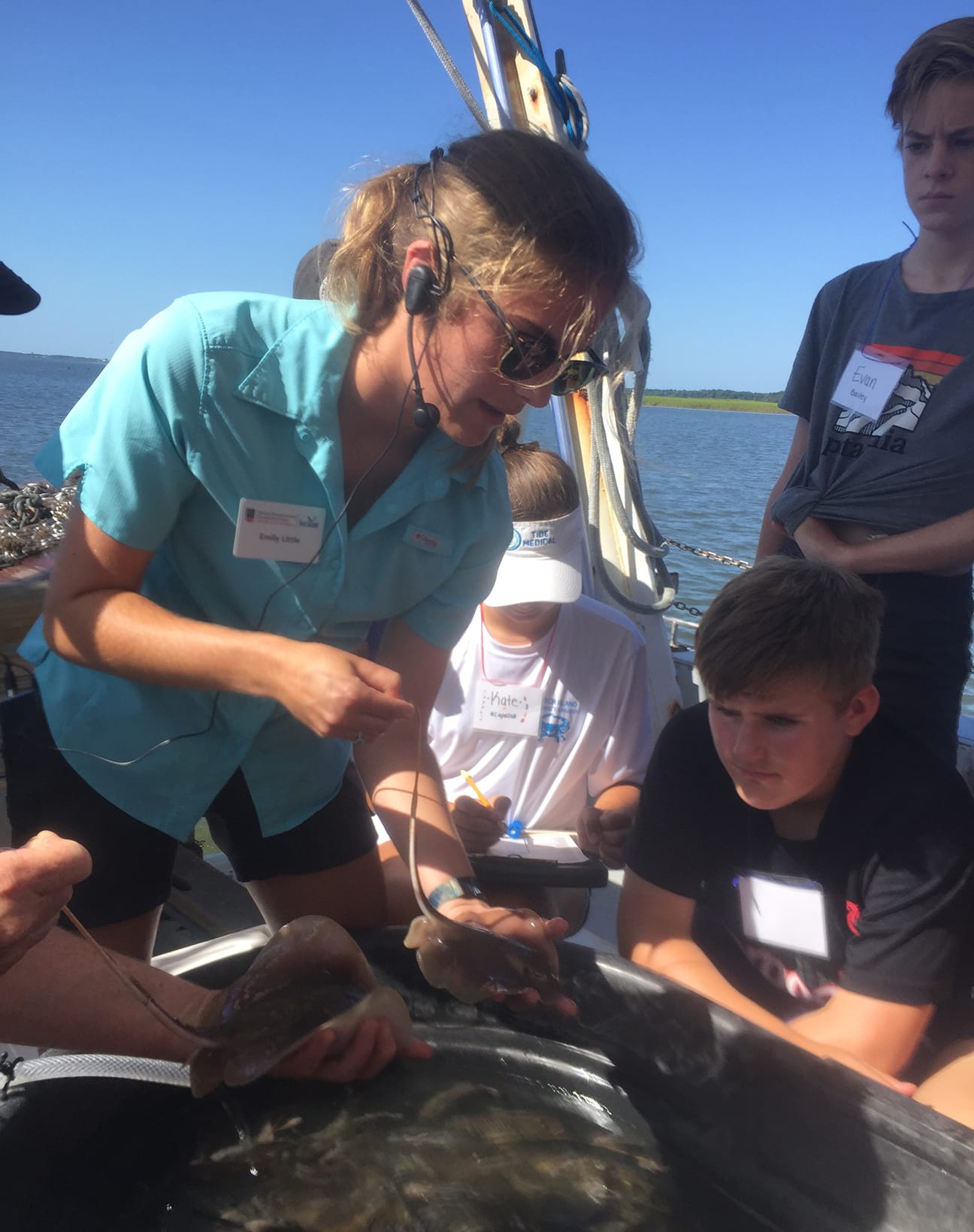
“No matter where a child comes from or what their background is, you just have to spark their attention. I’ve worked with preschoolers all the way up to college students and adults. I think I have an understanding of how to observe an audience and teach them (accordingly).”
Although her knowledge of marine life, especially on the Georgia Coast, is rock-solid, Little readily accepted the challenge of locking in on land animals.
“I’m very excited to work with terrestrial animals,” she said. “I loved studying marine biology and the culture of the coast, but you are limited in the ecosystems and animals you learn about. I was really looking to broaden my knowledge, so I started to look toward zoos and other facilities where they house the bigger, charismatic megafauna. I look forward to getting to know the animals here and their personalities.
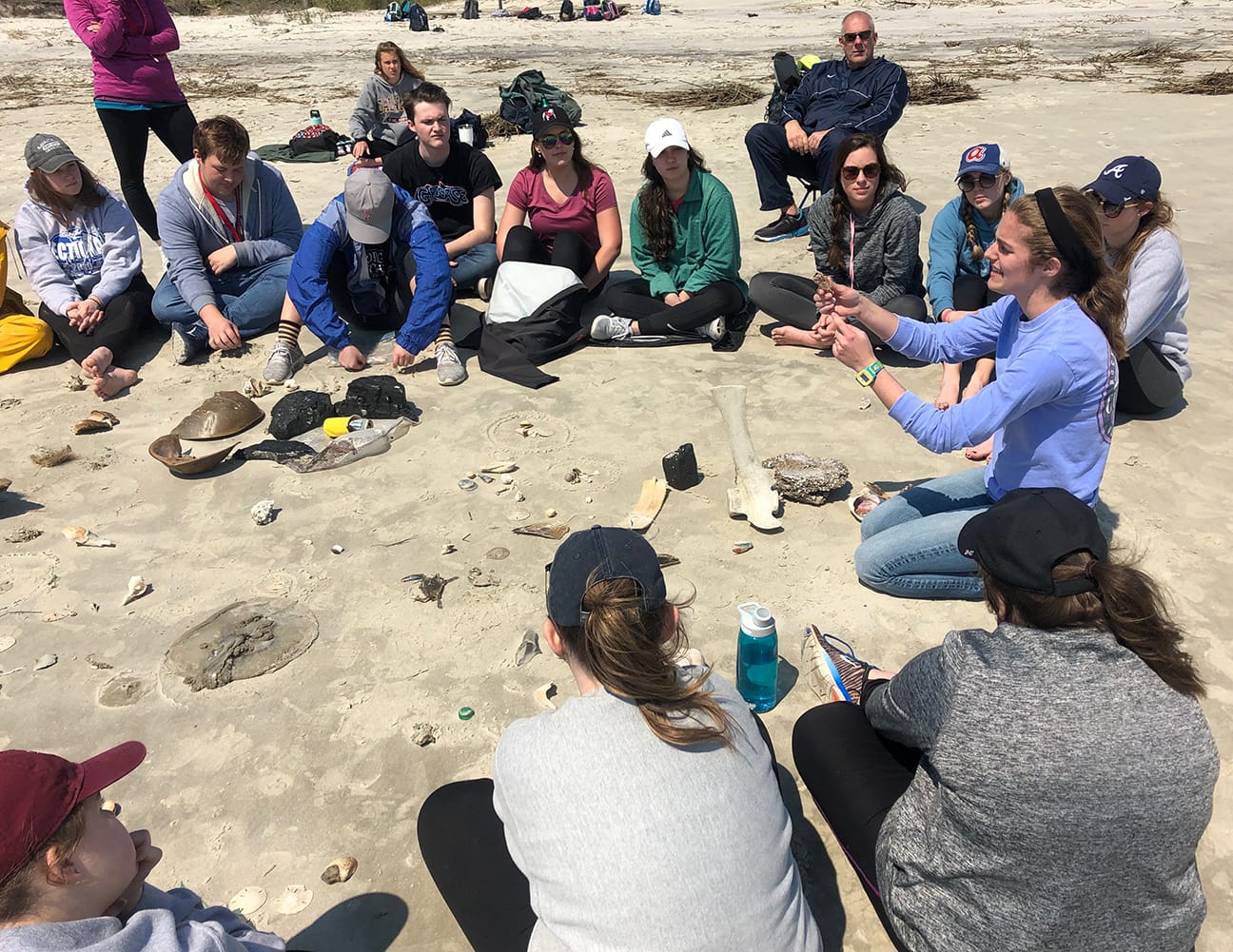
“I’m really enjoying sitting in a van and just watching their behavior. They are so cool and big – you don’t have to look at them under a microscope.”
So far, so good. Just do not ask Little what her favorite Fossil Rim animal is, because “it changes every day.” It sounds like Fossil Rim’s humans are growing on her, as well.
“I love the staff here,” she said. “Everyone is very welcoming. Some are interested in my marine-related background and learning what I can bring to the table.”
She joins longtime staff member Mark Phillips as Fossil Rim’s education specialists. It is a particularly interesting time to step into the education department.
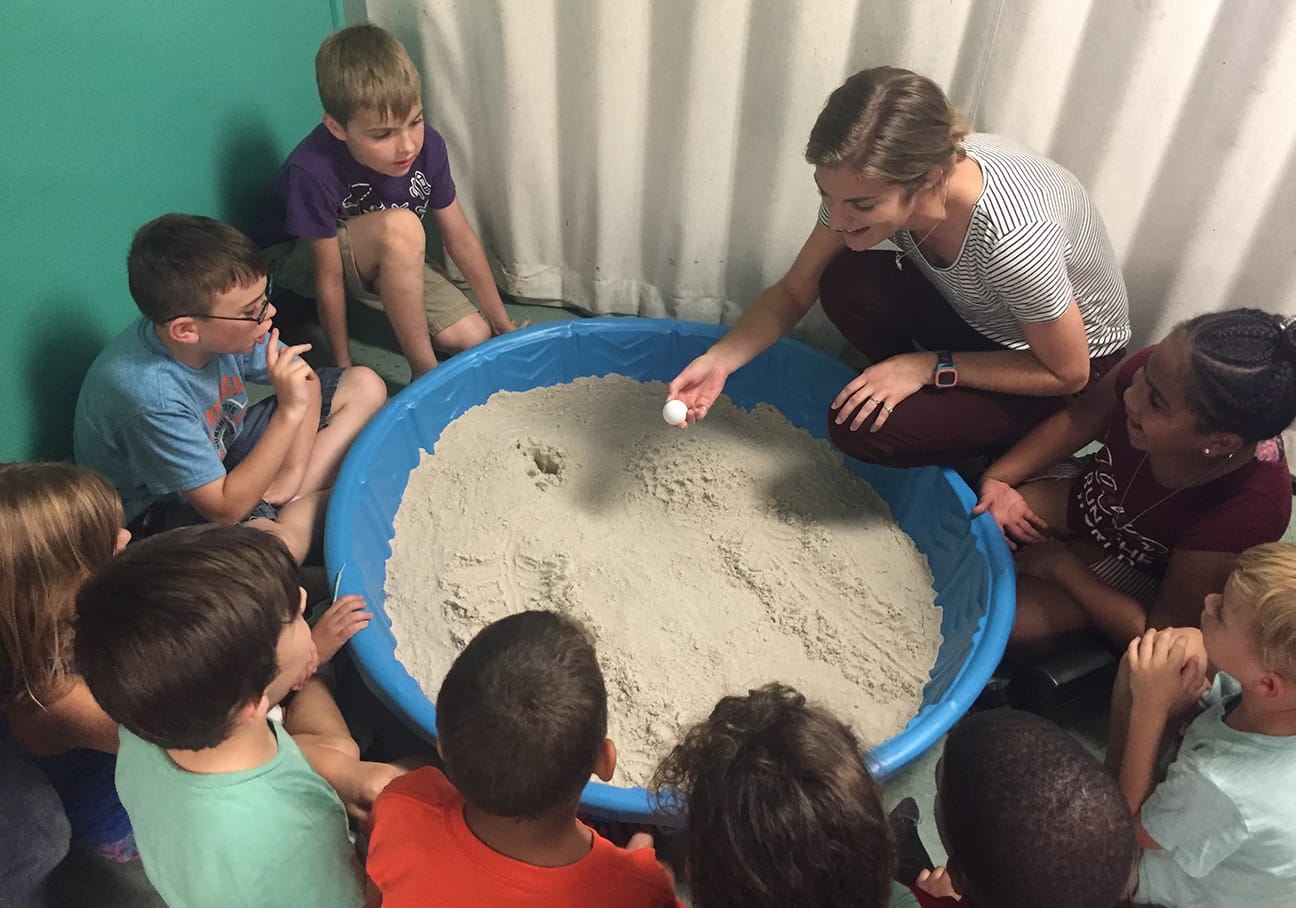
“As people know, we are revamping the education department,” Little said. “I think my role is to bring in some of the knowledge I have about teaching to different groups, but to also be the feet on the ground wherever the department needs me. I’ll be helping with overnight camps, school programs, and giving tours – finding any way I can to connect the public, both children and adults, to the animals we have here and make them passionate about conservation in general.
“(Reserved Programs Supervisor) Andrew (Bullard) is my direct supervisor, so I think camps are probably my first priority, but I’ll also help (Visitor Programs Supervisor) Will (Baker) with the public programs and with any volunteer groups. I have the same job title as Mark, but he can do everything, so it’s probably tougher to narrow down his role.”
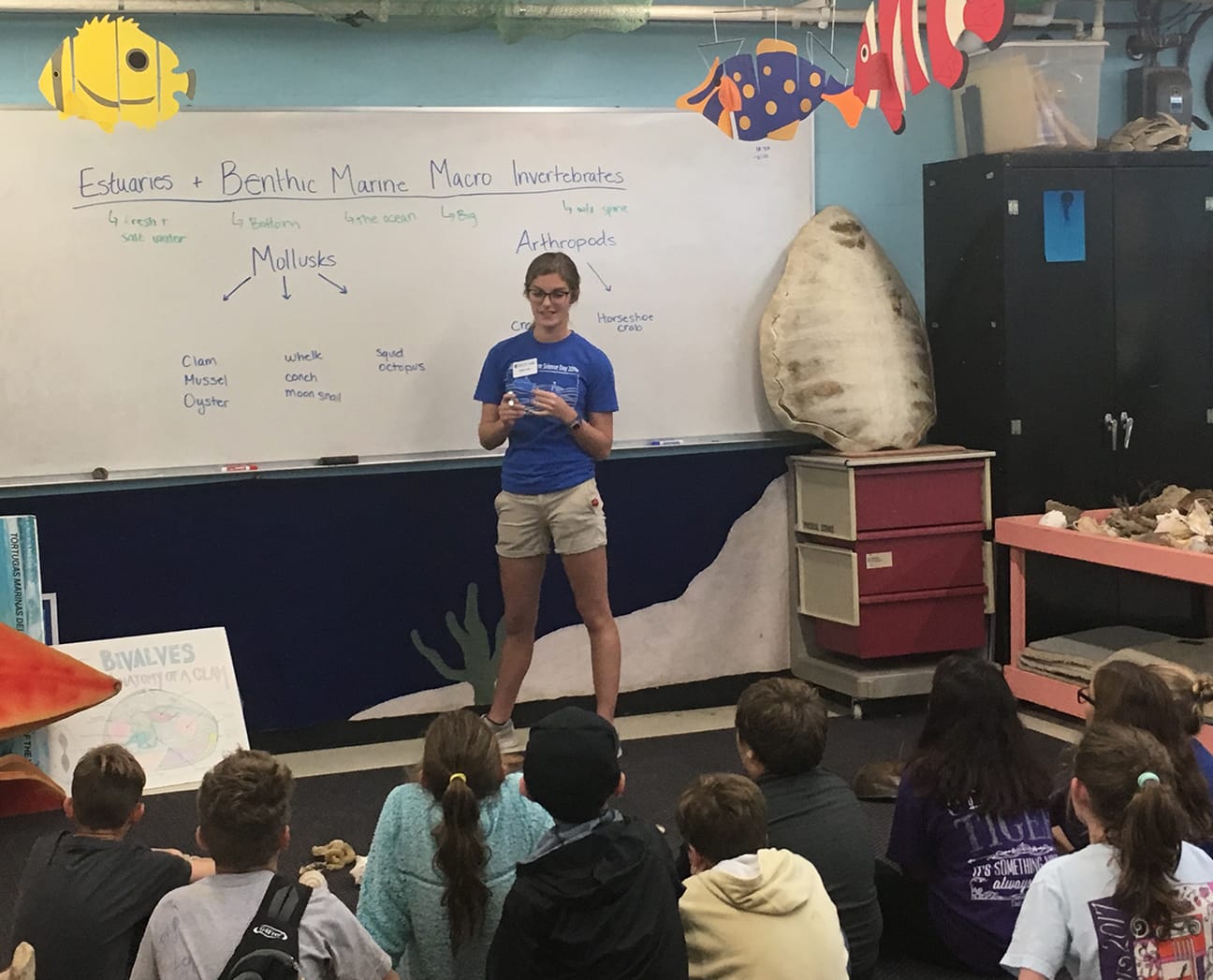
Little explained her approach to teaching.
“My teaching style is all about adapting to my audience,” she said. “I like to sit and watch (when possible) before interacting. I try to have a ‘catcher’ to get their attention. I love to ask questions and go back and forth with who I’m teaching.
“If you ask questions when teaching, you’ll always learn something. I love getting questions I don’t know the answer to. Whatever I can do to instigate critical thinking, I’ll adjust my approach to do so.”
Little appreciates that her department is trying to make adjustments in the best interest of serving its audience of Fossil Rim guests, both longtime and first-time.
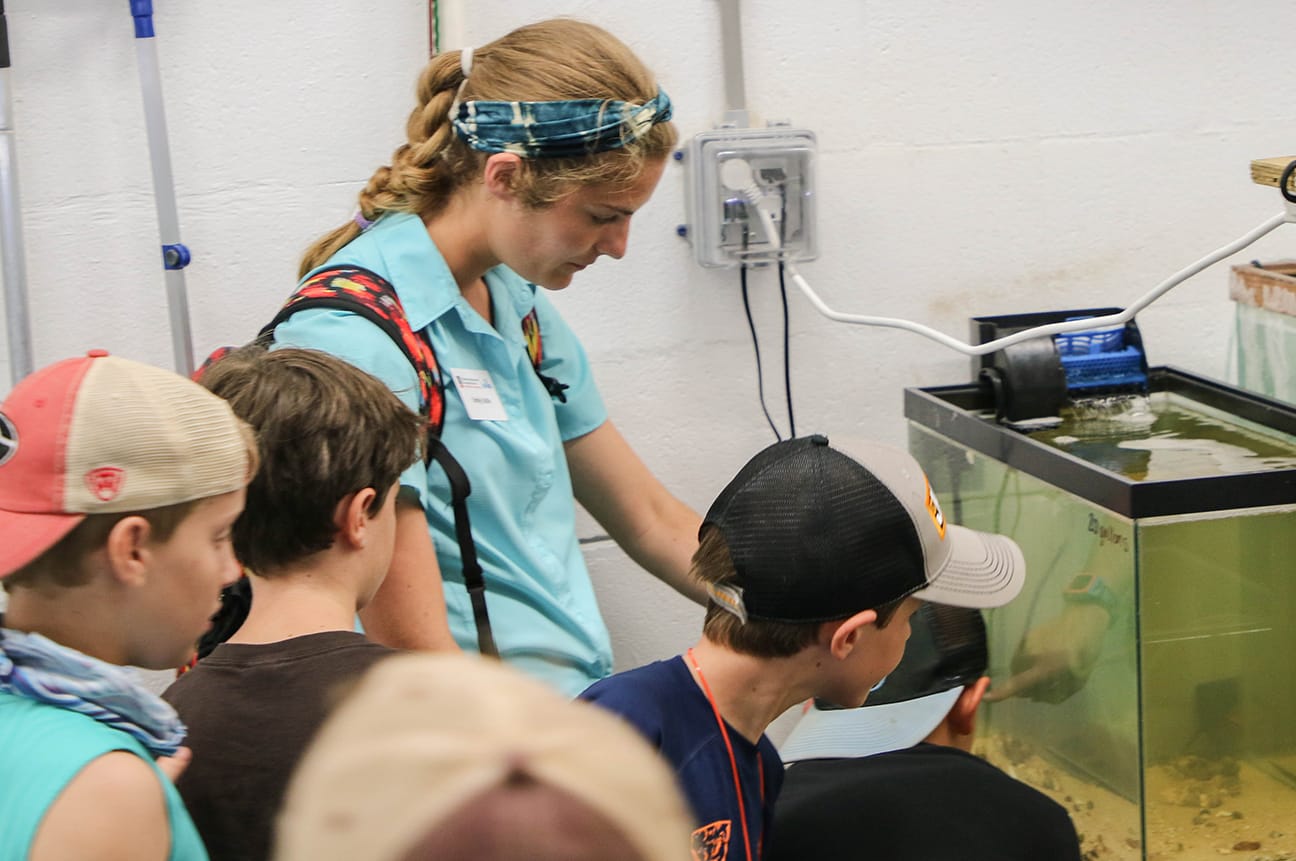
“I come from an organization that I loved, but they were very set in their longtime approach,” she said. “Being able to witness the education staff here refresh their programs and create new ones has been great. Fossil Rim is adapting to the lessons we need to be teaching, and the education staff is very flexible in their teaching. I appreciate how my coworkers are open to change.
“As I come in, I’m learning the current programs while also learning the programs we’ll unveil (in 2020). For me, that’s exciting to take on the challenge of learning double the programs at the same time and then grow as a teacher from there. We’re all test-driving the new programs together.”
After years of coastal living, Little said she misses the mountains of her native Colorado and now finds herself somewhere in between.
“Compared to my four years in Florida, (Fossil Rim) is definitely closer to the mountainous landscape,” Little said. “Nowadays, when I go back to Colorado, I struggle with the altitude.”
To her point about the Fossil Rim landscape, a Texas Monthly article in 2000 described Somervell County as “a diminutive slice of Hill Country that somehow migrated to the rolling prairies southwest of Fort Worth.”
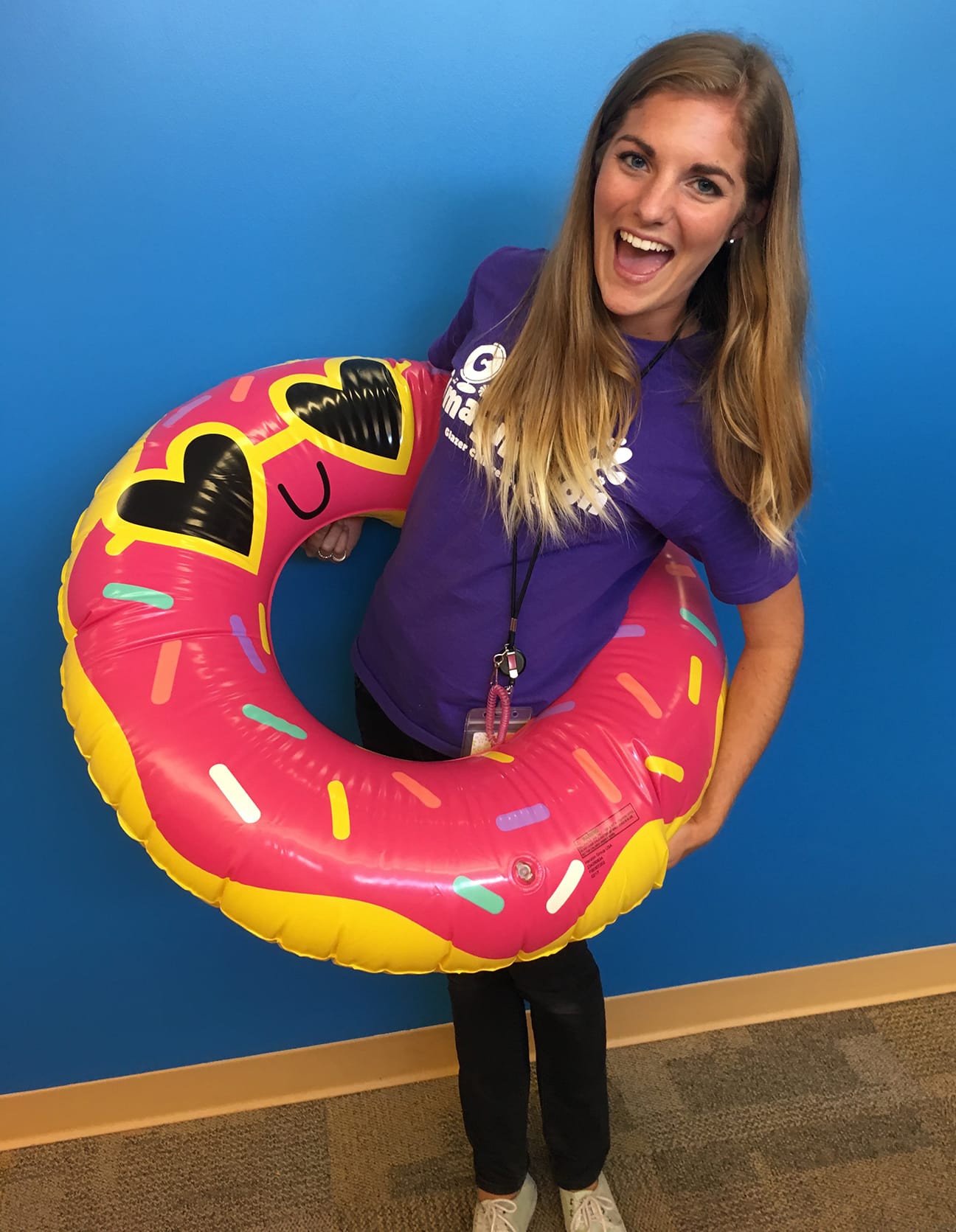
Those childhood experiences in Loveland definitely seem to have impacted this woman who is now embracing both experiencing and sharing the wonders of Fossil Rim Wildlife Center.
“I’ve always loved animals and being outdoors,” she said. “My ‘happy place’ was always up in the Rocky Mountains by the streams, and in the trees, watching for animals. A sense of peace was instilled in me when I was outdoors.
“This place combines a cool environment with lots of fun, fascinating animals. I get that sense of peace back when I drive through here. I’m just excited to be here.”
She definitely knows how to communicate with kids, but Little has a message for parents, too.
“I think parents should come here with their kids,” she said. “Not only will it be fun for the kids when they are with the education department; we’ll make it fun for the parents, too. The excitement you get from coming out here with an open mind is contagious for everybody involved. You’re going to learn, but you might not even realize it’s happening in the moment because you’ll be having so much fun.”
-Tye Chandler, Marketing Associate
